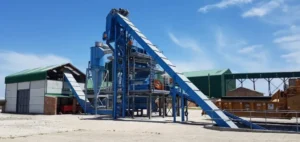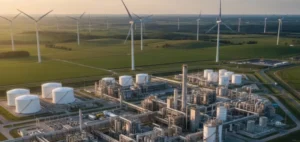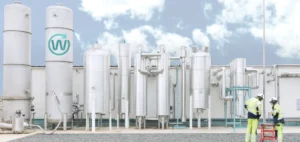Biomethane, known as Renewable Natural Gas (RNG), is emerging as a key energy solution, particularly suited to sectors where options for reducing carbon emissions are limited.
Produced from biogas, derived from the decomposition of organic waste, biomethane can be injected directly into existing gas infrastructures, making its integration simple and efficient.
Energy policies in Europe and North America have encouraged greater adoption of this renewable energy source.
Incentive regulations in these regions have accelerated the pace of projects, leading to an increase in production capacity.
However, the availability of the raw materials needed for production remains a major challenge.
A steady supply of organic waste, often from seasonal agricultural cycles, is crucial to maintain continuous production.
Revenue forecasts for production equipment
Forecasts for the period 2024-2033 indicate strong growth not only in terms of production capacity, but also in revenues generated by the sale of equipment specifically for biomethane production.
This trend is particularly marked in regions where policies to support renewable energy are most developed, such as Europe and North America. The increase in demand for this equipment is directly linked to initiatives to strengthen the infrastructure needed to process and convert organic waste into biomethane.
Nevertheless, the viability of this growth will largely depend on producers’ ability to secure a steady flow of raw materials and optimize production technologies.
Competition for access to these natural resources is likely to intensify as new players enter the market, which could have an impact on production costs and project profitability.
Strategic Issues and Market Challenges
Players in the biomethane sector have to navigate in an increasingly competitive environment, where optimizing production processes and efficient resource management play a crucial role.
Producers’ flexibility in adapting to variations in feedstock supply, as well as their ability to innovate in purification technologies, will be decisive in maintaining their market position.
Forecasts for the next ten years point to a rapidly changing market, with considerable opportunities for those who manage to adapt to the growing demands for efficiency and sustainability.
Biomethane, with its potential to reduce greenhouse gas emissions, is fully in line with the energy strategy of many countries seeking to diversify their energy mix while meeting their climate targets.





















